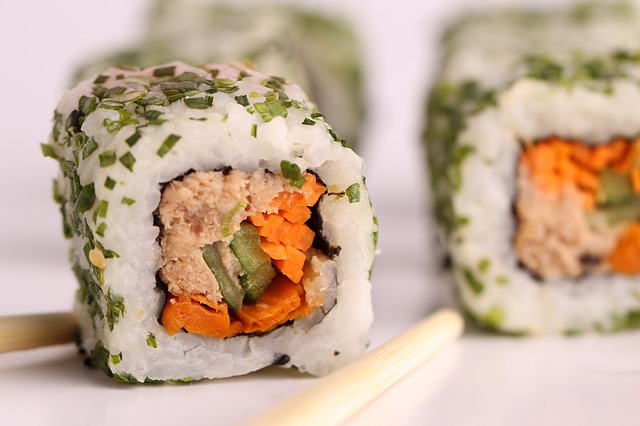Japan health officials are reporting a rise in foodborne parasitic infections from raw fish dishes, such as sushi and sashimi in recent years, so much that for three consecutive years from 2013 to 2015, anisakiasis was the third most frequent cause of food poisoning, following that by norovirus and Campylobacter.

According to the National Institute of Infectious Diseases (NIID), only 6 events (6 cases) were reported in 2007, but its frequency increased gradually reaching 127 events (133 cases) in 2015.
The Ministry of Health, Labour and Welfare (MHLW) has issued an alert on the consumption of uncooked fish, including those marinated in vinegar, as these can still be a cause of anisakiasis.
Researchers estimate that the number of anisakiasis cases occurring annually in Japan was approximately 7,000 and the anisakiasis cases reported to the Food Poisoning Statistics could be a tip of the iceberg.
Related: Sushi, sashimi and worms, oh my!
According to the Centers for Disease Control and Prevention (CDC), Anisakiasis is a parasitic disease caused by nematodes (worms) that attach to the wall of the esophagus, stomach, or intestine.
The signs and symptoms of anisakiasis are abdominal pain, nausea, vomiting, abdominal distention, diarrhea, blood and mucus in stool, and mild fever. Allergic reactions with rash and itching, and infrequently, anaphylaxis, can also occur.
The best ways to prevent this disease is to avoid eating raw or undercooked fish or squid.
Related:
- Venezuela releases 1st Epi bulletin in a long time: Malaria and diphtheria summary
- Eating insects: Cricket farming can be a sustainable way to produce animal source foods
- Kansas: Meningococcal meningitis suspected as cause of death of Barton County man
- Botulism update: Possibly linked to nacho cheese sauce
- Hepatitis Delta Virus (HDV) Infection in the U.S. growing: Poster


One thought on “Japan, sushi and the rise of Anisakis”